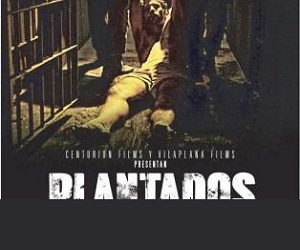 Andy Garcia and Guillermo Cabrera Infante confirmed this fact with their hoax entitled The Lost City (2005), trashed by critics internationally.
Andy Garcia and Guillermo Cabrera Infante confirmed this fact with their hoax entitled The Lost City (2005), trashed by critics internationally.
Here is just one sample of what was said about that film, at the time, in this case by Spanish critic Beatriz Maldivia: “The film is, in short, a string of endless dialogues, poorly written, totally unrelated, and with no other purpose other than allowing Andy Garcia and Cabrera Infante to disseminate a kind of dissertation on Cuba that would be rejected by any children’s magazine. It is cinematically – not only ideologically – null and void.”
After a huge publicity campaign during its preparation, and the announcement that it would be the most expensive film by a Cuban exile (read counterrevolutionary), Plantados, directed by Lilo Vilaplana, with a screenplay by Ángel Santiesteban, Juan Manuel Cao and the director himself, was released in Miami.
The plan was to fictionally recreate “the nobility and endurance of Cuban political prisoners in the 1960s and 1970s in the face of the atrocities of the Castro-Communist prison regime.”
Within 24 hours, the film was posted on social networks, something unusual for an expensive premiere, films that are customarily presented at festivals around the world first, to be make money and allow the investment to be recovered, as was unsuccessfully attempted with The Lost City, rejected here and there, as no good.
Someone on social media noted this strange decision to launch the film on the fly without recovering a penny, asking, “But why are they doing this and not trying to make a profit?
There are two obvious reasons for this hasty gamble. First, to support the current subversive campaign against Cuba, presenting a propagandistic, one-dimensional image of the subject they address, making no reference to the context, like the fact that more than of a few of the prisoners portrayed were criminals, and secondly, the filmmakers’ vacuous illusion that they have produced a masterpiece, capable of responding – as they expressly state – to what was exposed in The Wasp Network (Olivier Assayas, 2019), a film that outraged them for violating the empire’s instructions and presenting real heroes, as opposed to the “heroes” they now attempt to resurrect from the past as a “message of rebellion,” addressed to generations that did not live those days.
The ploy of rewriting history and leaving out inconvenient facts is an old trick: the United States lost the war in Vietnam, but years later Rambo appeared, capable of winning another vengeful invasion on his own, and comforting those longing for a past that never existed.
The counterrevolution lost more than 60 years ago, despite its efforts to re-conquer Cuba by blood, fire and maneuvers of all kinds, and now resorts to the standard deceptions of a fictional film to sentimentally reconstruct the facts, at its convenience.
In the artistic field – as professional critics will undoubtedly note, if they pay any attention at all to the film – Plantados makes clear the negative consequences of a lousy melodrama that confuses the time setting, divides the protagonists into very good guys and bloodthirsty bad guys, with rambling dialogues in which every expression has a premeditated purpose, a repetitive script full of arguments timeworn to the point of exhaustion, sappy music and scenes of beatings and murders in prisons and labor camps that fill a good part of its almost two hours of footage. Long segments are marked by tear-jerking grandiloquence regarding the conflicts, and no skills of the trade are evident in the development of a contemporary act of vengeance, which owes much to the worst of Hollywood, despite the film’s multi-million dollar budget.
Some clear-headed minds at the Miami Film Festival, where the film premiered a few days ago, must have realized that Plantados would bomb and, although they accepted it, the film was not given the importance it deserved, according to director Lilo Vilaplana.
He complained on his Facebook page, that the Festival had given the film “fifth-rate treatment,” failing to promote it “not in advertising, nowhere. It is a film made in exile, by artists living here; it should have been given another kind of importance.”
Indignantly – perhaps anticipating the artistic failure so painful for any creator – he raised the political stakes: “The Miami Film Festival’s disrespect for the historic exile and its complicity with the Castro dictatorship is shameful.”
And to make sure there would be no doubt as to the intentions of the film, Vilaplana asserts that the Festival organization does not care for films like Plantados, since they “like those that build bridges, that say we must unite, but with the dictatorship, we do not negotiate.”
And Vilaplana goes further: “Those films that invite people to go to Cuba are complicit with the dictatorship, and that regime must be overthrown, because it has done much harm to Cubans… They (the Festival directors) did not want the film to be present, and I felt it even in the people who were attending the Festival, they were upset that the film was there.”
The film will find an audience among the exile community’s fanatics and there will be many who will promote it as a “revealing work,” without acknowledging the manipulation of emotions it employs, as a basic principle of counterrevolutionary propaganda serving a subversive plan that does not rest.
But hatred and art never go hand in hand. Good luck artistically next time, director, and get over this one.
(Taken from Granma)